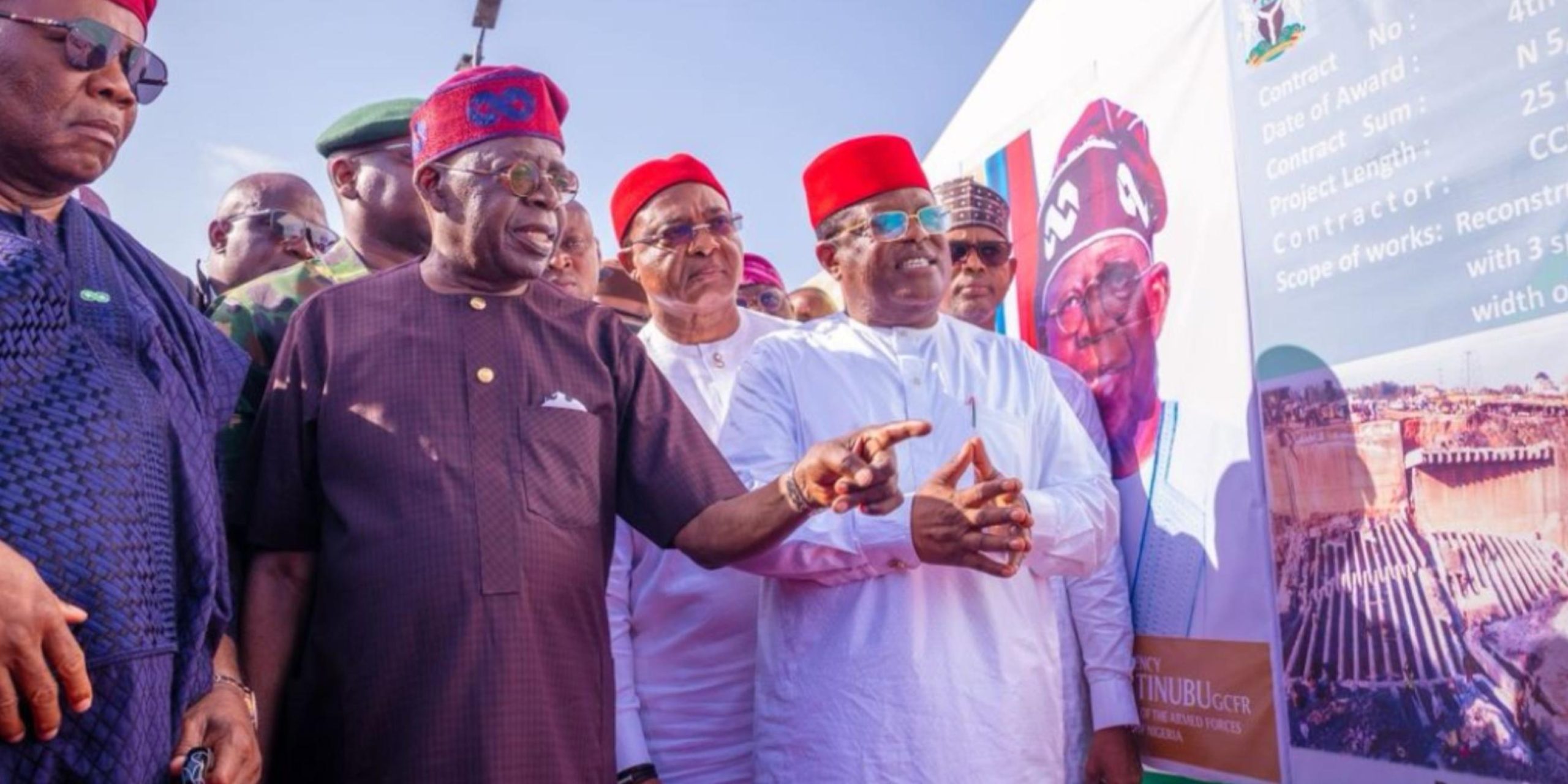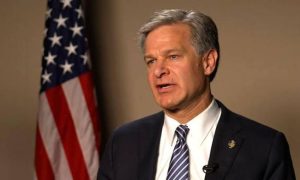Backlash As Tinubu Dismisses Critics Of N15 Trillion Lagos-Calabar Coastal Highway: A Nation Divided Over Development and Democracy
In the blistering heat of June 6, 2025, as the city of Lagos buzzed with anticipation at the commissioning of a vital infrastructure project—the 37-kilometre Lekki Deep Sea Port Access Road—President Bola Ahmed Tinubu ignited a firestorm of controversy that reverberated far beyond the concrete and steel of Nigeria’s evolving transportation network. His offhand comment, seemingly aimed at deflecting mounting criticism over the colossal N15.6 trillion Lagos-Calabar Coastal Highway project, may have inadvertently deepened the very fissures of public trust that the road was meant to bridge.
With Minister of Works, David Umahi, standing beside him, Tinubu offered words that would become the catalyst of an intense national debate. “I appeal to you, David: don’t listen to those critics; they don’t know what they’re talking about. If they don’t like the road or if it’s too expensive, or toll it for them, they could go to Idumota,” Tinubu declared, brushing off concerns with the air of a leader seemingly out of step with the tone of public discourse.
In the digital age, it didn’t take long for the clip to go viral. Within hours, hashtags like #CoastalHighway, #TinubuToneDeaf, and #Idumota dominated Nigerian social media platforms, particularly X (formerly Twitter). And for good reason: the president’s flippancy was perceived not merely as a political faux pas but as a glaring symbol of an administration detached from the economic and emotional realities of ordinary Nigerians.
The Lagos-Calabar Coastal Highway is, by any measure, an ambitious undertaking. Spanning over 700 kilometers, its promise is to link Nigeria’s commercial capital with key southern cities, stretching along a picturesque but environmentally sensitive coastal corridor. The idea of a modern highway easing transport bottlenecks and enabling economic growth in neglected regions is seductive.
YOU MAY READ
EXCLUSIVE: Tinubu Govt Awards Oil Blocks To Firm Registered Eight Days Before Bidding, Violating NUPRC Licensing Guidelines
From the outset, the project has been marred by questions. Why the sudden urgency? Why the high cost—N4 billion per kilometre? Why the exclusion of competitive bidding processes that are central to fiscal transparency in democratic settings? Why the sudden demolitions in areas like Okun-Ajah and Moba Town, reportedly carried out with minimal consultation or compensation?
Moreover, with Nigeria’s debt profile soaring and subsidy removals already punishing ordinary citizens through hyperinflation and widespread economic despair, many citizens and economists began asking: At what cost does development come?
The backlash to Tinubu’s comments revealed more than just dissatisfaction with a highway. It unmasked a deeper anxiety—one rooted in perceptions of elite detachment, lack of accountability, and an ever-widening gap between government rhetoric and lived reality.
“I never thought I would see the day a Nigerian president would casually say ‘go to Idumota’ like we’re talking about going to fetch water. We’re asking about our future and he’s being sarcastic,” tweeted @akpancino.
Another user, @Oluwamidunsin, called the president’s words “highly shameful,” adding: “This is not governance. It’s condescension disguised as leadership.”
These sentiments were echoed by other voices who interpreted the president’s remarks not just as insensitive but as symptomatic of an administration increasingly intolerant of scrutiny. In a nation where the democratic space is narrowing, and protests are often met with excessive force, the dismissal of civic concerns through ridicule sends a chilling message.
At the heart of the controversy lies a central tension between two competing visions of governance: technocratic authoritarianism and participatory democracy. The former privileges infrastructure, numbers, and metrics—seeing critics as nuisances in the march toward modernity. The latter centers the voice of the people—however inconvenient—as vital to sustainable development.
President Tinubu’s defenders argue that Nigeria desperately needs bold infrastructure interventions. The Lagos-Calabar Coastal Highway, they say, is a generational investment in the country’s future. Economic hubs like the Lekki Free Trade Zone, the Dangote Refinery, and ports in Akwa Ibom, Cross River, and Rivers stand to benefit immensely.
But critics counter that even the most well-meaning project becomes illegitimate when shrouded in secrecy, executed through questionable financial practices, and carried out with a cavalier disregard for democratic accountability.
Moreover, public anger has been magnified by the fact that this road—ostensibly funded by public money—is slated to be tolled. For many Nigerians already enduring record levels of taxation and inflation, the notion of paying to use a road they effectively financed is seen as a betrayal.
“Taxpayer money to build a toll road? That’s like paying to enter your own house,” wrote @ChukwukaObi5.
The fallout from the president’s comments has not been confined to social media. Within civil society, legal and policy advocacy groups have begun demanding a full audit of the project. The Socio-Economic Rights and Accountability Project (SERAP) issued a statement calling on the National Assembly to open a public hearing on the financing and environmental assessments related to the highway.
“We are deeply concerned by the opacity surrounding this project. Democracy is not only about elections; it’s about transparency in public expenditure and respect for the voices of the governed,” said SERAP in its release.
Environmental groups have also raised red flags. The Nigerian Conservation Foundation warned that the highway’s coastal alignment could endanger fragile ecosystems, displace fishing communities, and violate international agreements on environmental protection.
Meanwhile, opposition politicians have seized on the backlash to highlight what they describe as a pattern of arrogance from the presidency. A spokesman for the Labour Party decried Tinubu’s “growing habit of speaking like a landlord rather than a public servant.”
In politics, words matter. Leaders set the tone for national dialogue, and their speech—especially during periods of economic turmoil—carries more weight than ever.
Tinubu’s sarcastic dismissal of his critics was perhaps meant to rally his supporters and signal resolve in the face of opposition. But in an era when millions of Nigerians are living below the poverty line, with no access to healthcare or education, sarcasm can easily curdle into cruelty.
The damage, some argue, is not just political but moral.
“This isn’t about whether the road is good or bad,” wrote political analyst Ifeanyi Ogwude. “It’s about how you speak to your people. Empathy is not weakness. A president must lead not just by building bridges of concrete but bridges of trust.”
The Lagos-Calabar Coastal Highway debate is ultimately a microcosm of Nigeria’s wider governance challenges. The country stands at a crossroads—torn between the dream of modern infrastructure and the necessity of inclusive, transparent, and equitable development.
As Nigeria moves further into the 21st century, the pressure on leaders to deliver tangible change will only intensify. But delivery must come with dialogue. Projects must be explained, justified, and executed in partnership with the people—not imposed upon them with condescension.
Otherwise, what is meant to be a symbol of unity and progress—like the Coastal Highway—risks becoming yet another monument to elite excess and missed opportunities.
Where Do We Go From Here?
In the wake of the backlash, the Tinubu administration faces several pressing questions:
- Will the presidency issue a clarification or apology to the public? So far, no formal statement has been released in response to the controversy, a silence that many interpret as dismissive.
- Will the National Assembly fulfill its oversight role? There are growing calls for an independent probe into the financing, planning, and environmental compliance of the Coastal Highway.
- Can civil society and local communities play a more active role in shaping infrastructure development? The future of public projects in Nigeria must include robust consultation, not just after projects have begun but at the ideation stage.
- Will this moment trigger a deeper reckoning about the role of tone and temperament in leadership? Leadership is not just about efficiency; it is also about emotional intelligence. In a nation as diverse and fragile as Nigeria, words can either heal or harm.
As bulldozers roll and the ribbon-cutting ceremonies continue, the Lagos-Calabar Coastal Highway will no doubt reshape parts of southern Nigeria physically. But the political and emotional fallout from Tinubu’s controversial remarks may reshape the landscape of public trust even more profoundly.
In the end, it is not enough to build roads. A nation must also build legitimacy, consensus, and respect for the governed. Concrete may connect cities—but only compassion and dialogue can connect people.
If the government hopes to chart a new direction for Nigeria, it must do more than pave highways. It must pave the way for a new kind of governance—one grounded in humility, transparency, and democratic values.
Until then, the road to national unity may remain under construction.





